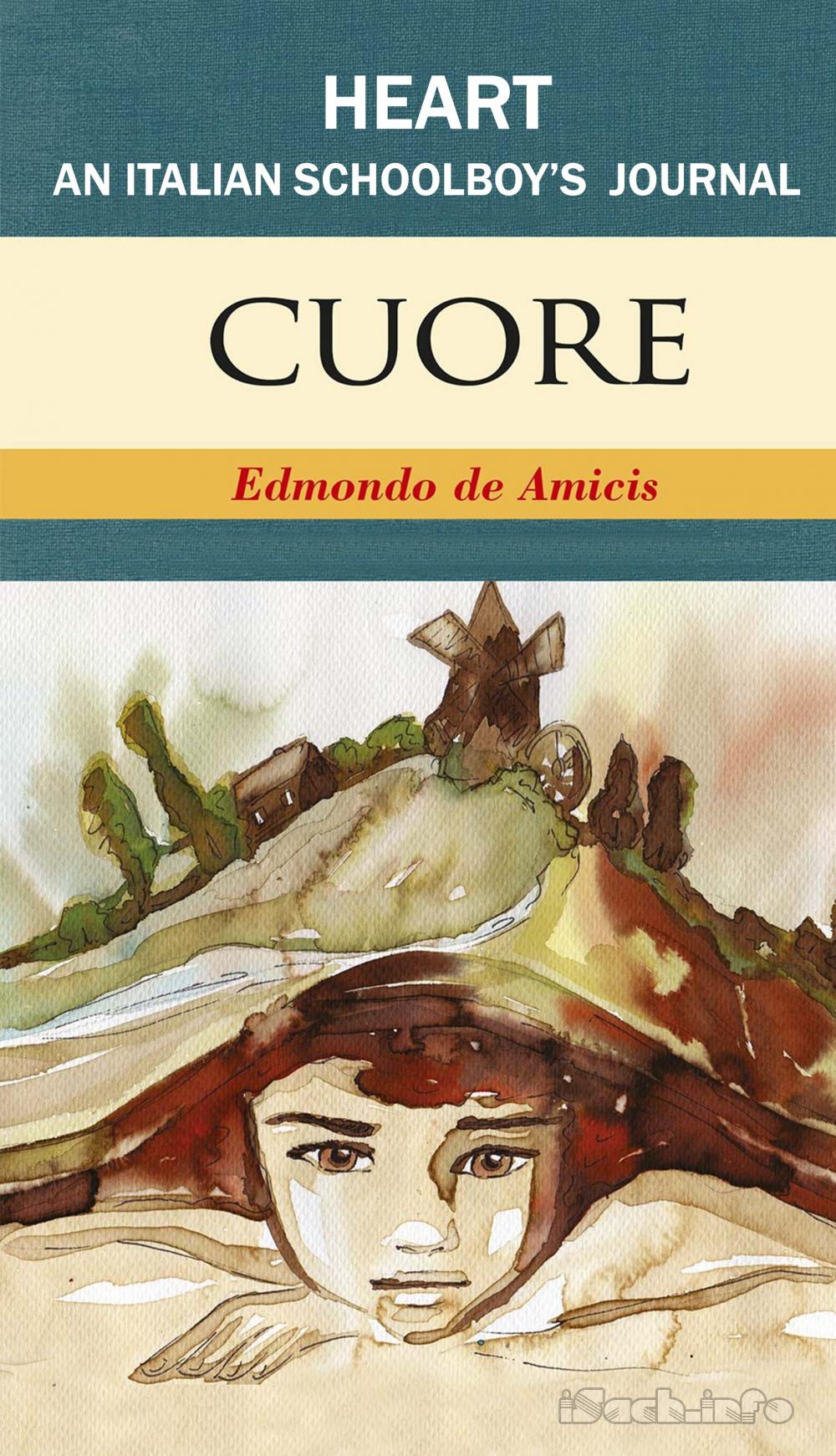Chapter 17: My Companion Coretti
S
unday, 13th.My father forgave me; but I remained rather sad and then my mother sent me, with the porter’s big son, to take a walk on the Corso. Half-way down the Corso, as we were passing a cart which was standing in front of a shop, I heard someone call me by name: I turned round; it was Coretti, my schoolmate, with chocolate-colored clothes and his catskin cap, all in a perspiration, but merry, with a big load of wood on his shoulders. A man who was standing in the cart was handing him an armful of wood at a time, which he took and carried into his father’s shop, where he piled it up in the greatest haste.
“What are you doing, Coretti?” I asked him.
“Don’t you see?” he answered, reaching out his arms to receive the load; “I am reviewing my lesson.”
I laughed; but he seemed to be serious, and, having grasped the armful of wood, he began to repeat as he ran, “The conjugation of the verb—consists in its variations according to number—according to number and person—”
And then, throwing down the wood and piling it, “according to the time—according to the time to which the action refers.”
And turning to the cart for another armful, “according to the mode in which the action is enunciated.”
It was our grammar lesson for the following day. “What would you have me do?” he said. “I am putting my time to use. My father has gone off with the man on business; my mother is ill. It falls to me to do the unloading. In the meantime, I am going over my grammar lesson. It is a difficult lesson to-day; I cannot succeed in getting it into my head.—My father said that he would be here at seven o’clock to give you your money,” he said to the man with the cart.
The cart drove off. “Come into the shop a minute,” Coretti said to me. I went in. It was a large apartment, full of piles of wood and fagots, with a steelyard on one side.
“This is a busy day, I can assure you,” resumed Coretti; “I have to do my work by fits and starts. I was writing my phrases, when some customers came in. I went to writing again, and behold, that cart arrived. I have already made two trips to the wood market in the Piazza Venezia this morning. My legs are so tired that I cannot stand, and my hands are all swollen. I should be in a pretty pickle if I had to draw!” And as he spoke he set about sweeping up the dry leaves and the straw which covered the brick-paved floor.
“But where do you do your work, Coretti?” I inquired.
“Not here, certainly,” he replied. “Come and see”; and he led me into a little room behind the shop, which serves as a kitchen and dining-room, with a table in one corner, on which there were books and copy-books, and work which had been begun. “Here it is,” he said; “I left the second answer unfinished: with which shoes are made, and belts. Now I will add, and valises.” And, taking his pen, he began to write in his fine hand.
“Is there any one here?” sounded a call from the shop at that moment. It was a woman who had come to buy some little fagots.
“Here I am!” replied Coretti; and he sprang out, weighed the fagots, took the money, ran to a corner to enter the sale in a shabby old account-book, and returned to his work, saying, “Let’s see if I can finish that sentence.” And he wrote, travelling-bags, and knapsacks for soldiers. “Oh, my poor coffee is boiling over!” he exclaimed, and ran to the stove to take the coffee-pot from the fire. “It is coffee for mamma,” he said; “I had to learn how to make it. Wait a while, and we will carry it to her; you’ll see what pleasure it will give her. She has been in bed a whole week.—Conjugation of the verb! I always scald my fingers with this coffee-pot. What is there that I can add after the soldiers’ knapsacks? Something more is needed, and I can think of nothing. Come to mamma.”
He opened a door, and we entered another small room: there Coretti’s mother lay in a big bed, with a white kerchief wound round her head.
“Ah, brave little master!” said the woman to me; “you have come to visit the sick, have you not?”
Meanwhile, Coretti was arranging the pillows behind his mother’s back, readjusting the bedclothes, brightening up the fire, and driving the cat off the chest of drawers.
“Do you want anything else, mamma?” he asked, as he took the cup from her. “Have you taken the two spoonfuls of syrup? When it is all gone, I will make a trip to the apothecary’s. The wood is unloaded. At four o’clock I will put the meat on the stove, as you told me; and when the butter-woman passes, I will give her those eight soldi. Everything will go on well; so don’t give it a thought.”
“Thanks, my son!” replied the woman. “Go, my poor boy!—he thinks of everything.”
She insisted that I should take a lump of sugar; and then Coretti showed me a little picture,—the photograph portrait of his father dressed as a soldier, with the medal for bravery which he had won in 1866, in the troop of Prince Umberto: he had the same face as his son, with the same vivacious eyes and his merry smile.
We went back to the kitchen. “I have found the thing,” said Coretti; and he added on his copy-book, horse-trappings are also made of it. “The rest I will do this evening; I shall sit up later. How happy you are, to have time to study and to go to walk, too!” And still gay and active, he re-entered the shop, and began to place pieces of wood on the horse and to saw them, saying: “This is gymnastics; it is quite different from the throw your arms forwards. I want my father to find all this wood sawed when he gets home; how glad he will be! The worst part of it is that after sawing I make T’s and L’s which look like snakes, so the teacher says. What am I to do? I will tell him that I have to move my arms about. The important thing is to have mamma get well quickly. She is better to-day, thank Heaven! I will study my grammar to-morrow morning at cock-crow. Oh, here’s the cart with logs! To work!”
A small cart laden with logs halted in front of the shop. Coretti ran out to speak to the man, then returned: “I cannot keep your company any longer now,” he said; “farewell until to-morrow. You did right to come and hunt me up. A pleasant walk to you! happy fellow!”
And pressing my hand, he ran to take the first log, and began once more to trot back and forth between the cart and the shop, with a face as fresh as a rose beneath his catskin cap, and so alert that it was a pleasure to see him.
“Happy fellow!” he had said to me. Ah, no, Coretti, no; you are the happier, because you study and work too; because you are of use to your father and your mother; because you are better—a hundred times better—and more courageous than I, my dear schoolmate.



 ePub
ePub A4
A4